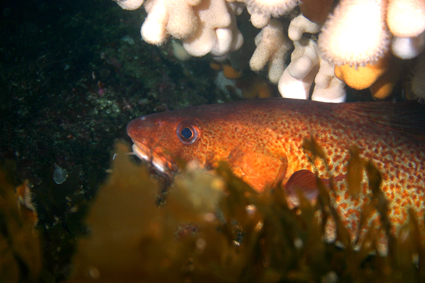Cuando era pequeño mis padres me obligaban a comer merluza, pescado que yo odiaba y sigo odiando cordialmente. –Aprovecha, ¡que se va a extinguir muy pronto!– me susurraban con aire conspirativo para animarme a tragar el siguiente bocado. Yo esperaba que se extinguiesen durante la próxima media hora para no tener que soportar su sabor nunca más.
Pues bien, según los pescadores, este año hay mucha merluza en Galicia, pero la pesquería se encuentra cerrada por decisión de Bruselas. Y Bruselas decreta el cierre (entre otras cosas) porque los datos de capturas que han venido reportando los pescadores españoles son muy inferiores a los reales. Consiguientemente infieren que las poblaciones están en mal estado y cierran la pesquería. Pero no sólo falla la recogida de datos que aporten información acerca del estado de las poblaciones de peces (algún día escribiré sobre la forma en que se realizan las estadísticas de capturas), la Política Pesquera Común también necesita de una reforma profunda.
Un ejemplo de esta necesidad es el caso del bacalao del Mar del Norte, que por lo que parece podría llegar a extinguirse de forma efectiva ante nuestras narices antes que mi odiada merluza (en realidad podría considerarse ecológicamente extinto en la actualidad).

Bacalao del Mar del Norte fotografiado en Escocia (aquí toda la historia).
En este excelente artículo del Guardian se detalla la cuestión:
Dr Paul Connelly’s criticism follows EU’s recommendation that cod fishing halts in Irish Sea and off west Scotland.
Cod stocks in the Irish Sea and the west coast of Scotland have collapsed because of overfishing and politicians’ refusal to fix low enough catch quotas, according to a leading fisheries scientist who advises the European commission on fish quotas.
Dr Paul Connolly’s comments followed the European commission’s decision on Wednesday to recommend for the first time that all fishing cod in the two sea areas is stopped. The commission has previously stopped short of pushing for such draconian measures in such a wide area of sea because of the political difficulty of placing a ban on fishing such a key species.
Connolly, who is the director of Fisheries Science Services at the Marine Institute in Galway, advises the commission on «total allowable catches» and in 2013 is due to take over as president of the International Council for the Exploration of the Seas (ICES), the oldest marine scientific body.
He said: «Continuous over-fishing has led to a collapse in cod in both these areas. The signs have been there for years and scientists have repeatedly warned quotas must be cut but fisheries ministers have time and time again ignored us. We do not know now whether the stocks will recover.»
The continuing crisis in the Common Fisheries Policy, where 88% of European stocks are overexploited and 30% in danger of collapse, has led the commission to label its own policy a failure. It has not achieved any of its objectives: to protect stocks, provide a sustainable food source and help fishing communities to be profitable.
The proposed bans were the most drastic measures the commission demanded this week designed to reduce the continued overfishing in many waters controlled by the EU. In all quotas for 53 stocks were reduced.
Maria Damanaki, the commissioner for fisheries, warned that if the EU did not reform the policy and reduce overfishing, only 8% of the 136 fish stocks in EU waters would be at sustainable levels by 2022.
According to ICES two of the biggest fishing nations France and Spain repeatedly failed to provide data on fish landings. This effectively prevented a realistic assessment of how many fish were actually caught and what was the state of the stock.
«The governments concerned say because there is not sufficient scientific evidence available that the stock is going down, then a higher quota should be fixed. Hiding the information is a political ploy to try and get higher quotas,» said Connolly.
Aware that this is a problem, the commission has reduced its recommended quotas for some of the major fisheries by up to 25%, to try and force governments to supply scientists with the data.
The commission’s decision puts pressure on governments to accept reforms and bring an end to the system where fishing ministers compete to get the best deal for their home industries without considering long-term consequences. As a result, the average quota for catches is fixed 48% higher than scientists advise.
Mike Parks, from the Scottish White Fish Producers Association, based in north-west Scotland, said a «state of anarchy» still exists in parts of the fishing industry where everyone was out for what they could get from a diminishing stock.

